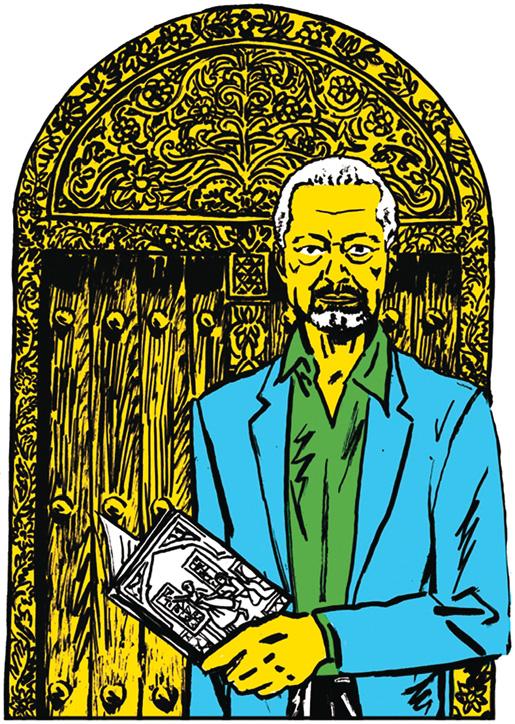
Armies, like writers, prey on orphans and misfits. Scenes of military recruitment have been a literary staple at least since Bulgarian soldiers kidnapped Voltaire's Candide, but few are more bleakly memorable than the one at the end of "Paradise" (1994), by the novelist Abdulrazak Gurnah. It's around the time of the First World War. Yusuf, a runaway servant in what's now Tanzania, wanders into a camp abandoned by askari, or local troops, who have occupied his coastal town in the name of Germany. He finds wild dogs eating the soldiers' excrement, and, when they return his gaze, experiences a shock of recognition. "The dogs had known a shit-eater when they saw one,” Yusuf decides, and promptly joins the askari.
The grotesque analogy poses a painful question: How did so many colonial subjects end up fighting for their conquerors, living, as it were, on the leftovers of empire? More than a million Africans served in the two World Wars, deployed both in Europe and in their own occupied continent. Gurnah, who grew up in Zanzibar, knew that one of his relatives had been conscripted as a porter into Germany’s Schutztruppe. Another had enlisted with the British, in the King’s African Rifles.
Yet scarcely any testimony survived to account for the experiences of soldiers like them. In Paradise,” his lapidary fourth novel, he tried to envision what kind of life might lead to such an act of desertion.
Esta historia es de la edición October 24, 2022 de The New Yorker.
Comience su prueba gratuita de Magzter GOLD de 7 días para acceder a miles de historias premium seleccionadas y a más de 9,000 revistas y periódicos.
Ya eres suscriptor ? Conectar
Esta historia es de la edición October 24, 2022 de The New Yorker.
Comience su prueba gratuita de Magzter GOLD de 7 días para acceder a miles de historias premium seleccionadas y a más de 9,000 revistas y periódicos.
Ya eres suscriptor? Conectar

HOLIDAY PUNCH
\"Cult of Love\" on. Broadway and \"No President\" at the Skirball.

THE ARCHIVIST
Belle da Costa Greene's hidden story.

OCCUPY PARADISE
How radical was John Milton?

CHAOS THEORY
What professional organizers know about our lives.

UP FROM URKEL
\"Family Matters\" and Jaleel White's legacy.

OUTSIDE MAN
How Brady Corbet turned artistic frustration into an American epic.

STIRRING STUFF
A secret history of risotto.

NOTE TO SELVES
The Sonoran Desert, which covers much of the southwestern United States, is a vast expanse of arid earth where cartoonish entities-roadrunners, tumbleweeds, telephone-pole-tall succulents make occasional appearances.

THE ORCHESTRA IS THE STAR
The Berlin Philharmonic doesn't need a domineering maestro.

HEAD CASE
Paul Valéry's ascetic modernism.